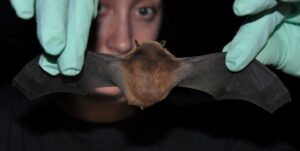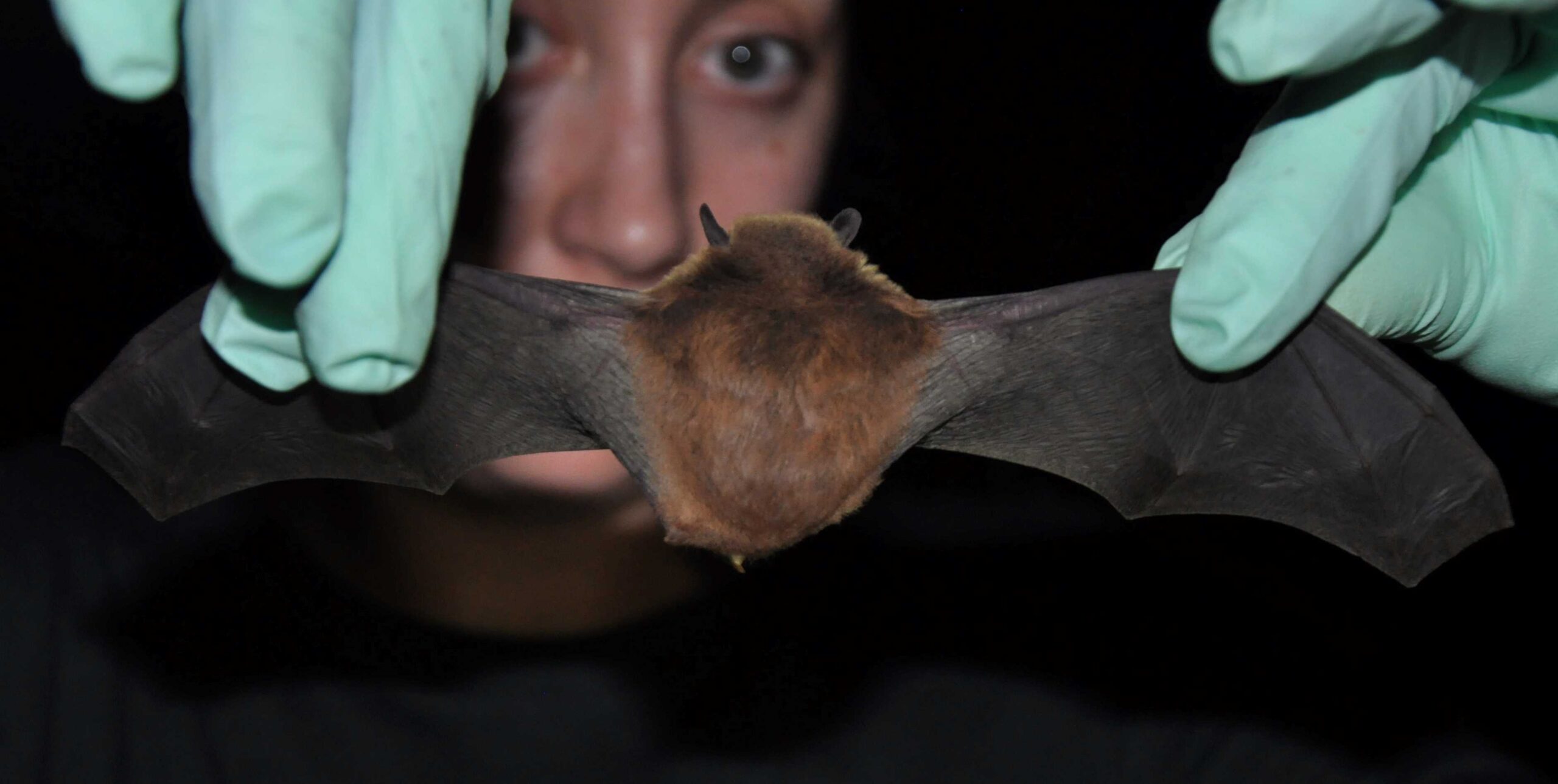 By: Rachel Ritchie
By: Rachel Ritchie
I am thrilled to be launching a research team this fall! I jumped at the opportunity to share my passion for small mammals, particularly bats, with undergraduate researchers. Team Backyard Bats will officially kick-off in early October. If you’re interested in learning more or joining Team Backyard Bats, keep reading, then fill out our interest form here:
Despite representing incalculable value to global ecosystems and human economics, bats are threatened worldwide by habitat loss, hunting, disease, and misinformation. Our goal as a research team is to learn more about the local bat population in Taylor County while building a relationship between Taylor County residents and their backyard bats.
Bats are active at night, so they use echolocation to navigate and find their prey in the dark. Echolocation is the use of sound to determine the location of objects nearby. A bat will send out an ultrasonic sound and listen for the echo, letting the bat know about the composition of the surrounding area and if any prey (usually insects) are close. Since echolocation calls are too high for our ears to hear, Team Backyard Bats will be using specialized acoustic monitoring devices, or “bat detectors,” to record the echolocation calls of bats. We’ll use the calls we record to determine where bats are active. This will help us select locations to place bat houses, which provide a dark, safe place for bats to sleep during the day. In doing this, we will learn more about the bat population in the area and help build and promote good habitats for bats.

Student researchers on my team will primarily be conducting activities outdoors, placing bat detectors and extracting data, but we will also use computers to analyze collected data. Eventually, we will conduct “bat walks” with handheld bat detectors and, hopefully, see some live bats in action!
Even if you are not interested in joining our research team, please consider hosting a bat detector on your property. We are looking for urban, suburban, and rural study locations. Bat detectors are small – about the size of a paperback novel – and completely non-intrusive and non-disruptive. If selected as a study site, researchers will need access to your property once every one or two weeks. If you or someone you know is interested in hosting a bat detector, please contact rachel.ritchie@cisco.edu.

